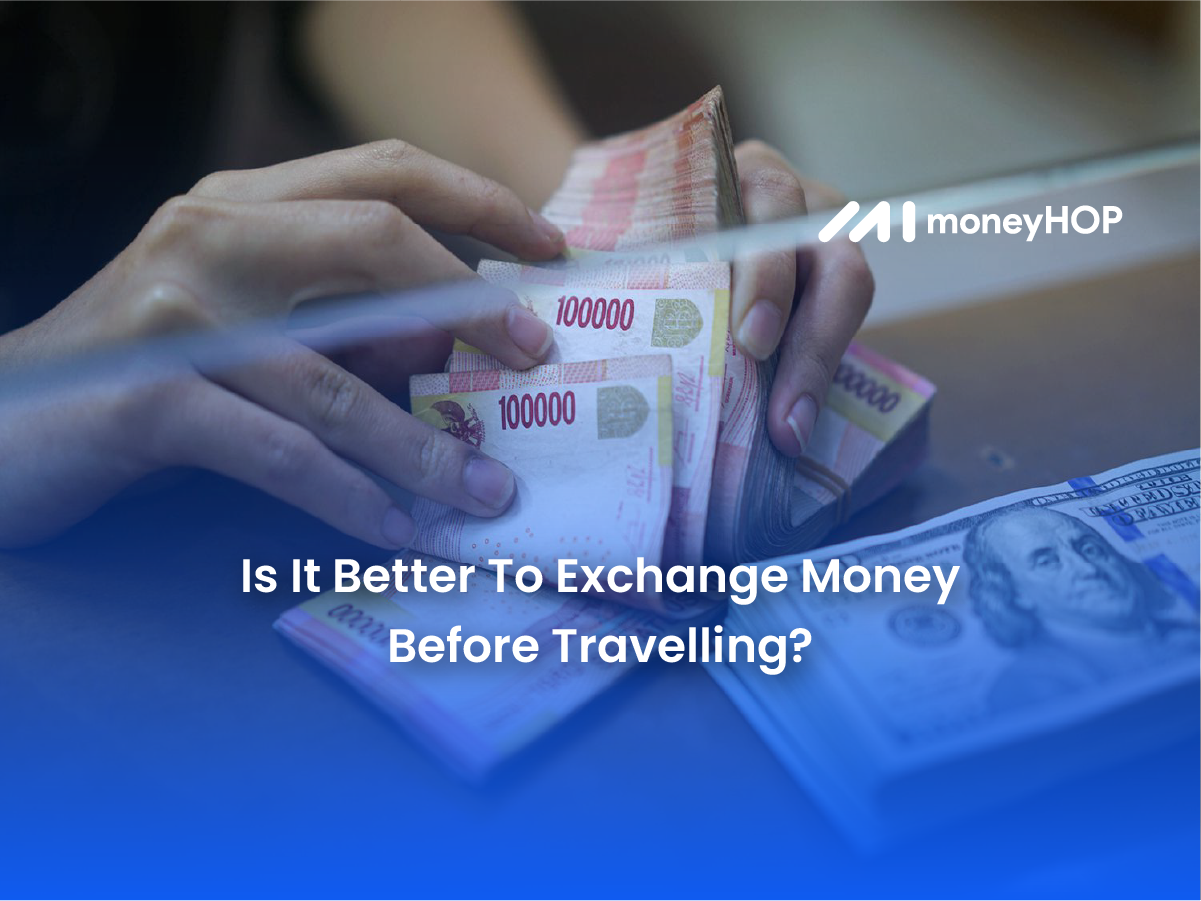When preparing for an international trip, one of the bigger questions being asked is whether you should exchange currency before leaving. With rapid changes in technology and more people travelling around the world, this decision is not as easy now as before. In this blog, we will delve into all the things that should be considered while converting currencies before going on an international trip. We will discuss contemporary international finance works and advice that suit different kinds of travellers. This will ensure you make prudent decisions that improve your trips.
1. Getting To Know Exchange Rates & Fees
The primary and most essential thing you must be aware of is about the conversion rates and the expenses related to converting currencies. For instance, financial institutions (i.e. banks, currency exchange firms, and online service providers) set different exchange rates and charges. The exchange of currency before your trip lets you lock in the exchange rate and it provides you with immunity against future currency value changes. So, do not forget to check different rates among banks& other financial agencies, as they may be more beneficial for you than rates offered by the kiosks in the airports which are often less favourable.
2. Factors of Convenience
Keeping local currency handy by exchanging it before departure to a foreign country offers convenience. Finding a currency exchange service upon arrival in a foreign country is always a daunting task. It can be tedious and create a hassle for your international trip. It’s better to pre-plan things early, which can alleviate your anxiety and help you start enjoying your trip once you land.
3. Concern for Safety & Security
Carrying a large amount of cash, regardless of the currency, poses security risks. While having local currency is convenient, obtaining it before you leave means you’ll be travelling with more cash on hand, which can be a concern in terms of loss or theft. In contrast, relying on ATMs or credit/debit cards at your destination can minimize the amount of cash you need to carry, provided that you use ATMs in secure locations and inform your bank of your travel plans to avoid any fraud alerts or blocks on your cards.
4. Online Payments & Credit Cards
The increasing popularity of digital payments and the acceptance of credit cards globally have simplified the task of managing finances. Many credit cards offer the finest exchange rate without charging you foreign transaction fees. This makes them a top choice for most people to use credit cards. In addition, mobile payment services like Apple Pay, Google Wallet and some local apps can decrease the use of cash. Nevertheless, it’s crucial to verify the availability of these payment options at your intended location as not all places may fully support transactions.
5. Local Currency For Small Transactions
Even in a digital age, having local currency is essential for small transactions, such as tipping, public transportation, or purchases at local markets where digital payments may not be accepted. Exchanging a small amount before travelling can cover these expenses and ensure you’re prepared for situations where cards and digital payments might not be an option.
6. Impact Of Currency Fluctuations
The value of the currency can change due to political and economic factors. The home country’s currency value can vary against the destination country’s currency from time to time. So, exchanging the currency when your home country’s currency is strong can result in saving money and increase the spending power during the trip.
At HOP Store Dehradun, we offer best currency exchange rates with no hidden charges. To visit HOP Store Dehradun, click here
Why pay more for international money transfers when moneyHOP is here?
- NO hidden fees
- ZERO convenience fees
- Real-time updates
- Lowest exchange rates
Conclusion
Deciding whether to exchange money before travelling depends on a combination of factors, including convenience, security, and the financial tools available. For those prioritizing convenience and immediate readiness, exchanging a portion of your travel budget into local currency before departure is wise. However, leveraging digital payment options and credit cards can also offer security and flexibility, with potential savings on exchange rates and fees.
Ultimately, the best approach is a balanced one. Consider exchanging a small amount of currency before you leave for immediate expenses and relying on cards and digital payments for the majority of your transactions. Stay informed about the financial landscape of your destination and plan accordingly to enjoy a smooth and enjoyable travel experience.

Leave a Reply